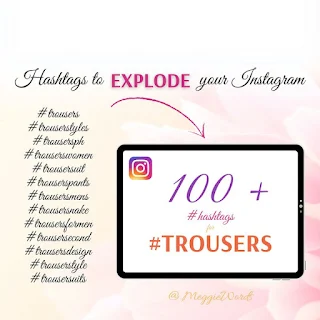How to Use Social Media Platforms Like Facebook, Twitter, Instagram, and LinkedIn to Promote Products or Services 🌐📱
How to Use Social Media Platforms Like Facebook, Twitter, Instagram, and LinkedIn to Promote Products or Services 🌐📱
In today's fast-paced digital world, social media platforms have become essential tools for digital marketing. Companies and individuals use platforms like Facebook, Twitter, Instagram, and LinkedIn to build strong relationships with their audience and increase brand awareness. In this article, we will explore how to effectively use each platform to achieve your marketing goals.
Facebook: The Largest Social Media Platform 🌍
1. Create a Professional Business Page
To start, you should create a professional business page on Facebook. The page should be attractive and professional, including a precise description of your brand, a cover photo, and a distinctive profile picture.
Posting valuable content is key to success on Facebook. The content can include educational articles, useful tips, educational videos, and pictures of your products or services. It is essential to have diverse and engaging content to attract a wider audience.
Facebook offers various advertising options, such as paid ads, which allow you to target a specific audience accurately. Use these tools to reach a broader audience and increase brand awareness.
4. Create Facebook Groups👥
Creating Facebook groups can be an effective way to build a community around your brand. Groups can be a place for direct interaction with customers, exchanging ideas, and receiving valuable feedback.
5. Analytics and Reports📊
Use the available analytics tools on Facebook to track the performance of your content and ads. This will help you understand what works and what doesn't, allowing you to continuously improve your strategy.
Twitter: Fast Communication and Effective Reach 🐦
Regular posting on Twitter helps keep your audience informed about the latest news and offers. Regular tweeting increases the likelihood of your tweets being seen by new followers.
Hashtags increase the reach of your tweets. Use popular and relevant hashtags to increase engagement. Choose hashtags carefully to ensure you reach your target audience.
Create Twitter lists to follow important accounts in your field. This helps you stay updated on current news and trends, allowing you to quickly interact with relevant content.
Instagram: The Power of Images and Videos 📸
Instagram heavily relies on images and videos. Ensure that the content you post is of high quality and appealing to your audience. Use filters and available tools to enhance images and videos.
Instagram Stories and live streaming are excellent tools for real-time interaction with your audience and providing exclusive content. Use these tools to engage your audience more and interact with them in real-time.
Collaborating with influencers can significantly increase your reach on Instagram. Choose influencers who align with your brand and target audience.
Use the available analytics tools to track the performance of your posts and stories. This will help you understand what works and what doesn't, allowing you to continuously improve your strategy.
LinkedIn: The Professional Networking Platform 🌐
Start by creating a company page on LinkedIn with all the necessary details about your business. The page should be professional and attractive.
Interact with your audience by replying to comments and participating in professional discussions. This helps build a strong network and increase brand awareness.
Use LinkedIn paid ads to reach a larger audience and increase brand awareness. Choose ads that target a specific professional audience.
6. Analytics and Reports📊
Use the available analytics tools to track the performance of your content and ads. This will help you understand what works and what doesn't, allowing you to continuously improve your strategy.
Benefits: Building a Relationship with Your Audience and Increasing Brand Awareness 🤝
Using social media effectively can lead to building a strong relationship with your audience. Continuous interaction and regular posting help increase brand awareness and make it more visible to the target audience. Additionally, it can contribute to increasing sales and achieving marketing goals.
Practical Tips to Improve Your Social Media Strategy 📈
- Consistency: Keep posting content regularly to maintain audience engagement.
- Diversity: Provide diverse content including texts, images, videos, and stories.
- Interaction: Interact with your audience by replying to comments and questions.
- Analysis: Use analytics tools to evaluate content performance and identify areas for improvement.
- Learning from Competitors: Monitor competitors to know successful strategies and apply what suits your brand.
- Continuous Update: Keep updating your strategy according to changes in audience behavior and new trends.
Conclusion
By using social media platforms smartly and effectively, you can enhance your digital presence and build a strong relationship with your audience. Each platform offers unique tools that can be used to increase brand awareness and achieve your marketing goals. Do not hesitate to explore and experiment with new strategies to improve your performance on these platforms. 🚀
In the end, remember that success in social media marketing requires patience and perseverance. Keep improving your strategy and learn from your experiences to achieve the best results.

.jpg)
.jpg)







